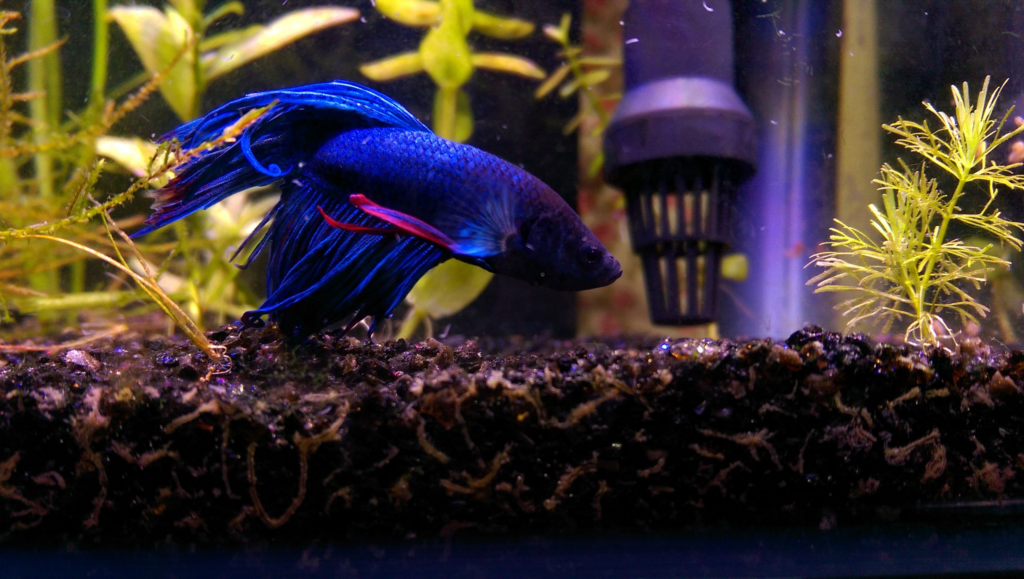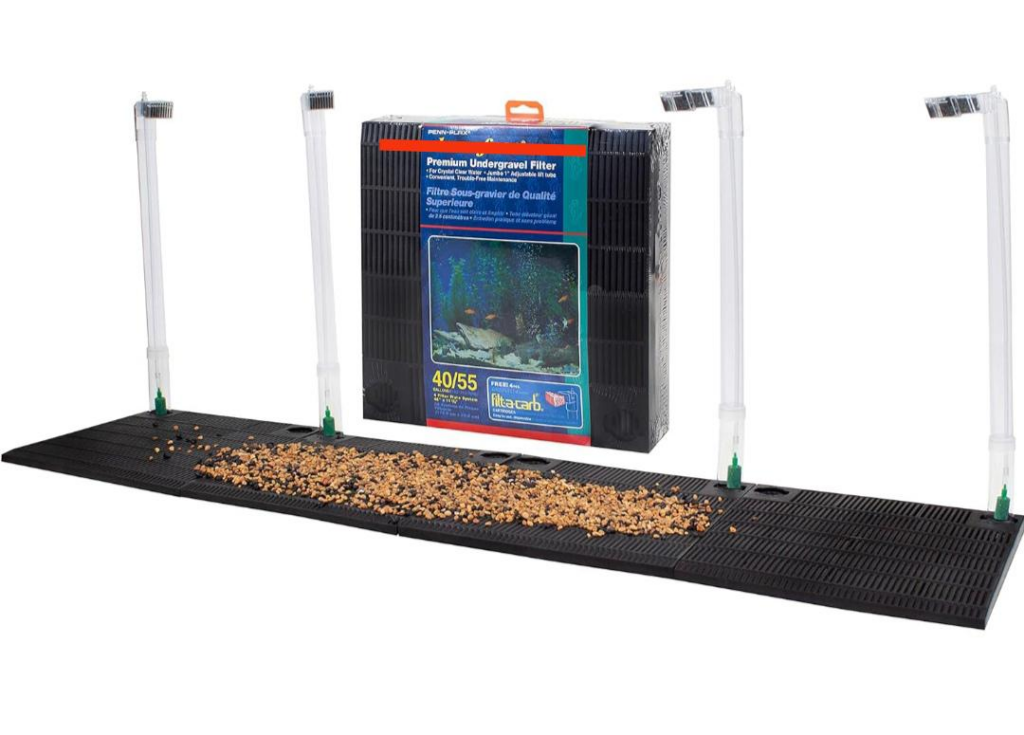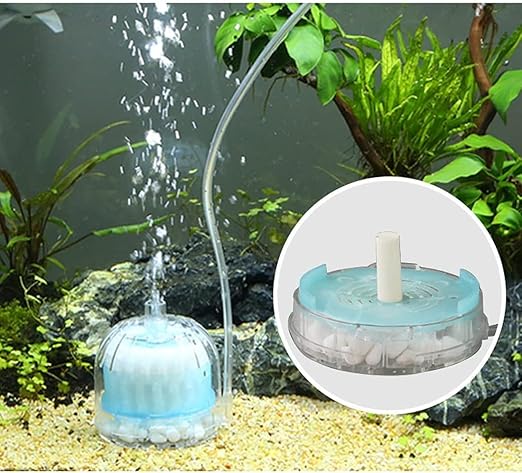When it comes to setting up an ideal environment for your betta fish, having the right filter is crucial. A proper filtration system not only helps maintain a clean and healthy tank but also ensures the well-being of your betta. In this article, we will explore the different types of filters available for betta fish tanks and provide insights on which one is best suited for your beloved fish.

Understanding Betta Fish and Their Filtration Needs
Before we dive into the specifics of filters, it’s important to understand the unique characteristics and needs of betta fish.
Betta fish, also known as Siamese fighting fish, are tropical freshwater fish known for their vibrant colors and flowing fins.
They require a properly filtered tank to maintain optimal water conditions and ensure their overall health and longevity.
Betta fish produce waste, and if left unfiltered, it can lead to the accumulation of toxins such as ammonia and nitrite, which are harmful to the fish.
Additionally, bettas have labyrinth organs that enable them to breathe air directly from the surface. However, they still require a well-oxygenated environment that can be provided by a suitable filter.
Different Types of Filters for Betta Fish Tanks
When it comes to selecting the right filter for your Betta fish tank, several options are available:
For more information, here is a list of the 7 quietest aquarium filters.
Sponge filters
Sponge filters are a popular choice among betta fish owners due to their gentle water flow and effective biological filtration.
These filters work by drawing water through a sponge, which provides a surface for beneficial bacteria to grow, helping to break down harmful substances in the tank.
They are also affordable, easy to maintain, and create minimal water movement, which betta fish prefer.
Hang-on-back filters

Hang-on-back (HOB) filters are another viable option for betta fish tanks. They are easy to install and offer mechanical, chemical, and biological filtration.
HOB filters hang on the back of the tank, providing efficient water circulation and a customizable flow rate.
For betta tanks, it’s advisable to choose a small-sized HOB filter or one with an adjustable flow to prevent strong currents that may stress your fish.
Canister filters
While canister filters are more commonly used for larger aquariums, they can also be suitable for betta fish tanks, especially if you have a larger setup.
Canister filters offer excellent mechanical and biological filtration and have a large media capacity, allowing for efficient water purification.
However, it’s important to ensure the flow rate is adjustable or use a spray bar to minimize water movement, as bettas prefer calmer waters.
For more information here is an article on the 7 best aquarium canister filters.
Undergravel filters
Undergravel filters work by drawing water through a plate or grid placed beneath the substrate, providing biological filtration.
While they are an option for betta fish tanks, they may not be the most practical choice. Undergravel filters can create strong water currents, which can be stressful for bettas.
Additionally, cleaning and maintenance can be more challenging compared to other types of filters.

Factors to Consider When Choosing a Filter for Betta Fish
When selecting the best filter for your betta fish tank, it’s essential to consider a few factors:
- Tank size and water capacity: Choose a filter that is suitable for the size of your tank to ensure efficient filtration without overwhelming your betta.
- Flow rate and adjustable settings: Opt for filters with adjustable flow rates or ones that provide options to minimize water movement and prevent stress for your betta.
- Filtration media and water quality: Consider the type of filtration media used in the filter and its impact on maintaining optimal water quality for your betta fish.
- Noise level and disturbance: Look for filters that operate quietly and avoid excessive disturbances, creating a calm and peaceful environment for your betta.
Best Filter Options for Betta Fish Tanks
Based on their specific benefits and considerations, here are some recommended filter options for betta fish tanks:
Sponge filters
Sponge filters are an excellent choice for betta fish tanks due to their gentle filtration, affordability, and ease of maintenance. Some recommended brands and models include XYZ Sponge Filter and ABC Air-Driven Sponge Filter.
Hang-on-back filters
For those looking for a convenient and efficient filter, hang-on-back filters are a popular choice. Recommended brands and models include DEF Hang-On-Back Filter and GHI Adjustable Flow HOB Filter.

Canister filters
If you have a larger betta fish tank, canister filters can provide powerful filtration. Some recommended brands and models include JKL Canister Filter and MNO Adjustable Flow Canister Filter.
For more information here is an article on the 7 best aquarium canister filters.
Undergravel filters
While not the most recommended option, if you prefer using an undergravel filter, you may consider models such as PQR Undergravel Filter or STU Adjustable Flow Undergravel Filter.
Exploring Different Types of Filtration for Betta Fish Tanks
This section delves into the various types of filtration systems available for betta fish tanks, focusing on the importance of mechanical filtration and chemical filtration.
Learn about how a mechanical filter removes debris and the role of chemical filtration in maintaining water quality.
Discover the benefits of using filter media like the Aquaclear filter and fluidized bed filters, and compare different filter media to determine the best choice for your aquarium.
Enhancing Betta Fish Tank Filtration with Air Pumps and Internal Filters
Discover how integrating an air pump can boost the effectiveness of aquarium filters in betta fish tanks.
This section highlights the differences between internal filters and other types of filtration systems, such as those that operate unlike sponge filters.
Gain insights into optimizing your aquarium filter setup to provide a healthy environment for your betta fish, and learn how to choose the most suitable aquarium filter for your needs.

Maintaining and Troubleshooting Betta Fish Tank Filters
Proper maintenance is vital to ensure the longevity and effectiveness of your betta fish tank filter.
Regular cleaning, checking for clogs or debris, and replacing filtration media as needed are essential tasks.
If you encounter common issues like low water flow or noisy operation, refer to the manufacturer’s instructions, or seek advice from experienced fish keepers to troubleshoot and resolve the problem.
Conclusion
Choosing the right filter for your betta fish tank is crucial for maintaining a clean and healthy environment. Factors such as the size of your tank, flow rate, and water quality should be considered when selecting the most suitable filter.
Whether you opt for a sponge filter, hang-on-back filter, canister filter, or undergravel filter, ensure it provides gentle water movement and efficient filtration without causing stress to your betta. By selecting the best filter and maintaining it properly, you will help ensure the well-being and longevity of your beloved betta fish.


